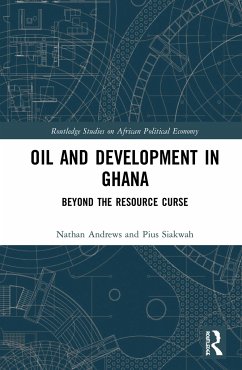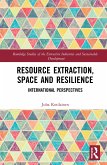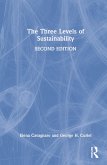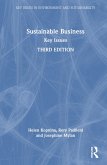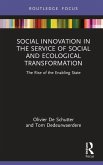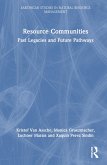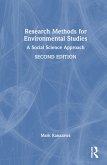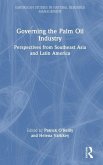This book gives a comprehensive overview of Ghana's hydrocarbon economy using actor network and assemblage theories to contest the methodological nationalism of mainstream accounts of the resource curse in resource-rich countries. Drawing upon recent field research focused on Ghana's oil and gas sector and utilizing the theoretical framework of actor network theory, the authors contend that there is an assemblage of political, economic, social and environmental networks, processes, actions, actors, and structures of power that coalesce to determine the extent to which the country's hydrocarbon resources could be regarded as a "curse" or "blessing." This framing facilitates a better understanding of the variety (and duality) of local and global forces and power structures at play in Ghana's growing hydrocarbon industry. Giving a nuanced and multi-perspectival analysis of the factors that underlie oil-engendered development in Ghana, this book will be of interest to students and scholars of African political economy, development and the politics of resource extraction.
Hinweis: Dieser Artikel kann nur an eine deutsche Lieferadresse ausgeliefert werden.
Hinweis: Dieser Artikel kann nur an eine deutsche Lieferadresse ausgeliefert werden.
"So often analyses of the so-called resource curse fall into the trap of methodological nationalism - isolating the problem to resources and state institutions in particular countries. This important book completely dispels this way of thinking by examining how the curse is constructed through transnational networks. This book is a very clear and theoretically important contribution to the literature and should be read very widely."
Pádraig Carmody, Trinity College Dublin, Ireland.
"Exposing oversimplistic 'resource curse' narratives, Andrews and Siakwah bring to light the many factors shaping the developmental outcomes of Ghana's oil sector. A much-needed book to better understand oil booms and their consequences."
Philippe Le Billon, University of British Columbia, Canada.
"At this moment of plummeting oil prices and proposed and actual bailouts of the hydrocarbon sector, a critical understanding of the interaction between socio-economic development and oil-driven development is crucial. This book offers a vital unpacking of the debate over whether extracted resources have the potential to impel broader economic and social development, in Ghana and the broader Global South. Andrews and Siakwah masterfully demonstrate that conventional understandings of the 'resource curse' insufficiently attend to the broader assemblages and political economic structures that have transferred wealth out of the countries, communities and environments where hydrocarbons are produced, into the pockets of ruling elites and global corporations."
Anna Zalik, York University, Canada.
"Andrews and Siakwah direct our attention beyond the resource curse to the assemblage of complex interactions and impacts resulting from Ghana's growing hydrocarbon industry. Oil and Development in Ghana will be of great interest to those wrestling with the intricacies and agency involved in Ghana's project to engender positive outcomes from its oil and gas discoveries."
Jesse Salah Ovadia, University of Windsor, Canada.
Pádraig Carmody, Trinity College Dublin, Ireland.
"Exposing oversimplistic 'resource curse' narratives, Andrews and Siakwah bring to light the many factors shaping the developmental outcomes of Ghana's oil sector. A much-needed book to better understand oil booms and their consequences."
Philippe Le Billon, University of British Columbia, Canada.
"At this moment of plummeting oil prices and proposed and actual bailouts of the hydrocarbon sector, a critical understanding of the interaction between socio-economic development and oil-driven development is crucial. This book offers a vital unpacking of the debate over whether extracted resources have the potential to impel broader economic and social development, in Ghana and the broader Global South. Andrews and Siakwah masterfully demonstrate that conventional understandings of the 'resource curse' insufficiently attend to the broader assemblages and political economic structures that have transferred wealth out of the countries, communities and environments where hydrocarbons are produced, into the pockets of ruling elites and global corporations."
Anna Zalik, York University, Canada.
"Andrews and Siakwah direct our attention beyond the resource curse to the assemblage of complex interactions and impacts resulting from Ghana's growing hydrocarbon industry. Oil and Development in Ghana will be of great interest to those wrestling with the intricacies and agency involved in Ghana's project to engender positive outcomes from its oil and gas discoveries."
Jesse Salah Ovadia, University of Windsor, Canada.

